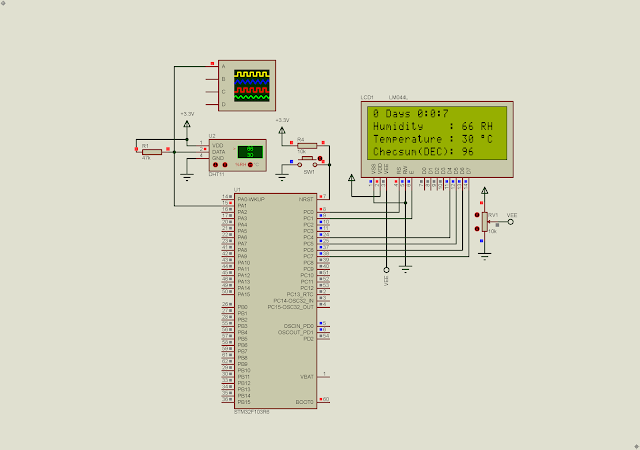In this programming example, I will use the high speed SPI module of the STM32F103R6 to interface with shift registers chips. The Serial Peripheral Interface (SPI) is a microprocessor high speed communication protocol using three wires. It has at least serial clock, serial data, and latch pins. It's asynchronous type. This communication protocol commonly used with shift registers chip, serial Flash memory chip, serial SRAM, serial EEPROM, etc.
 |
| Simulating Program |
A serial-in-parallel-out shift registers is popular for expanding the number of digital output pins. We can find two popular types - the SN74HC164 and the SN74HC595N. These chips can be use to drive LEDs, 7-Segment display, dot matrix display, etc.
 |
| The SN74HC595N In DIP Package |
 |
| The SN74HC595N Pins Diagram |
For a single register we use an 8-bit transfer mode. However if we use more than one register as it's shown in this programming tutorial, we can also use the 8-bit transfer mode. But for convenience we must use the 16-bit transfer mode. The hardware NSS signal is activated once for 16-bit transfer mode. However we can use software latch pin instead.
 |
| Device Configuration Tool |
A Push button connects to PC0. Whenever it's press, the counter value will increase. It will roll down to 0 when it reaches 100. The 7-Segment display is common cathode type.
Click here to download its source file.





No comments:
Post a Comment